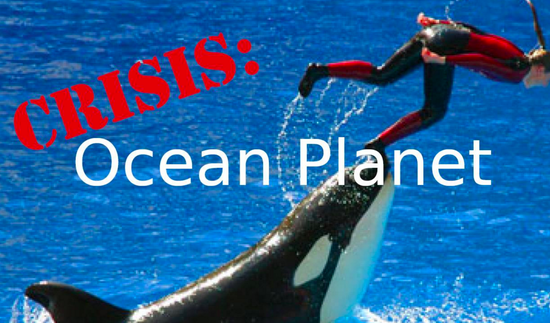-
To develop collaboration and social awareness among students.
-
To make students critical thinking about ocean pollution and its major effects.
-
To enable students to adopt various strategies for to protect our ocean.
Introduction
Oh No!
Look at These Poor Animals
Being Harmed by Our Pollution!


Many things affect our marine life, and pollution should never be one of them.
Did you know that...
Ocean pollution affects 817 animal species around the world and...
You can do something about it!
In this web quest we need some really resourceful students to help us find out ways that we can help prevent pollution from harming our marine life.
Task

According to research the oceans all over the world have numerous dead animals for example: turtles, whales, seals, etc. have been found on shore. These poor animals have encountered disposables in our oceans and have mistaken it for food! These ocean animals have been dying rapidly and we must act fast before they become extinct.


-
You will need to answer questions over the oceans pollution. You must record your information.
-
Prepare a poster about the topic how to prevent ocean pollution.
-
Prepare a brief report on ocean pollution; its major effects and its solutions.
Process
STEP 1
Go through the link and find out the answers correctly
1. What is the most common pollution element found in the ocean today?
https://www.rubicon.com/blog/ocean-pollution-facts/
2. What are five types of pollution that end up in the ocean?
https://greenliving.lovetoknow.com/Types_of_Ocean_Pollution
3. What island is the largest oceanic garbage site in the world?

https://theoceancleanup.com/great-pacific-garbage-patch/
4. How many seabirds die each year because of ocean pollution?
https://www.wwf.org.au/news/blogs/how-many-birds-die-from-plastic-pollution
ASSIGNMENT 1
Read the questions carefully and post your answers on google classroom
STEP 2
Go through the link given below
Ocean pollution; its major effects and solutions -https://www.texasdisposal.com/blog/ocean-pollution-causes-effects-and-prevention/
ASSIGNMENT 2
Prepare a brief report on the topic ocean pollution; its major effects and its solutions
STEP 3
Please click the link given below and watch the video on how to prevent ocean pollution.
ASSIGNMENT 3
Prepare a poster on the topic how to prevent ocean pollution and submit it.
Evaluation
You will be evaluated based on the following rubric:
| Category | Excellent | Very Good | Good | Poor | Value |
|---|---|---|---|---|---|
| Participation |
Actively participated (9-10) |
very good participation (7-8) |
less participation (5-6) |
no participation (<4) |
10 |
| Test Score |
Correct answer response (25-30) |
1 or 2 errors in response (20-25) |
3 or 4 errors in response (12-20) |
incorrect responses (<10) |
30 |
| Work Report |
Work on time, spelling and grammar mistakes and accurate way (25-30) |
1 or 2 errors in spelling and grammar mistakes and work on time (20-25) |
3 or 4 errors in spelling and grammar mistakes and work on time (12-20) |
failed to submit report (<10) |
30 |
| Poster |
Creativity, delivery of content and effectiveness (25-30) |
some what okay content delivery and creativity (20-25) |
less effective content transaction (12-20) |
not submitted (<10) |
30 |
| TOTAL | 100 |
Conclusion
"We can do this, we must do this, and we will do this" - Boyan Slat, speaking on ocean plastic clean up.
After this Web quest we hope all students have learned HOW to avoid plastic pollution to our oceans and are aware of the consequences of such. However, if that has not yet gotten our message across to you, we encourage you to watch the video below.
- THANK YOU :)

Credits
The following websites were referenced in this web quest:
- https://www.rubicon.com/blog/ocean-pollution-facts/
- https://greenliving.lovetoknow.com/Types_of_Ocean_Pollution
- https://theoceancleanup.com/great-pacific-garbage-patch/
- https://www.wwf.org.au/news/blogs/how-many-birds-die-from-plastic-pollution
- https://www.texasdisposal.com/blog/ocean-pollution-causes-effects-and-prevention/
- https://www.youtube.com/watch?v=zJiQt9ASSNg
- https://www.youtube.com/watch?v=HQTUWK7CM-Y